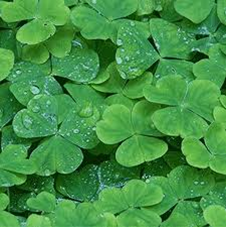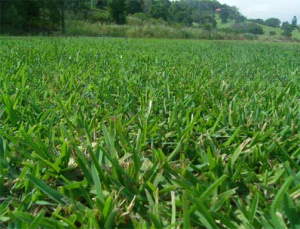Before giving the wombat something solid to eat,
ask yourself “Will they find this in the wild?”

This is a wombat’s natural habitat
A wombat’s diet consists of coarse native grasses, Sedges, Tussocks, Rushes, Succulent plant roots and Tubers. If accessible pasture grasses are also eaten.
 Kangaroo grass |
 Poa (large Tussock Grass) |
 Spear Grass |
 Poa Grass |
 Poa Kentucky Blue Grass |
 Black Spear Grass |
Grasses to Avoid

Clover Grass

Buffalo/ Kikuyu Grass
The amount of grass you need to feed your wombat in care is something that you will learn from your wombat. If they are eating all the grass you give them – then give them a little more. If they are leaving some – then give them a little less. It will also change over time as they grow bigger and have less milk feeds. It is something that is constantly changing and needs a lot of common sense. Just like us they have days when they don’t eat much and days when they eat a lot!
SOMETIMES YOU MAY NEED TO SUPPLEMENT GRASS FEEDS
This may be the case in summer when grass is hard to find. Suitable pellets are Barastoc Calm Performer Pony Pellets or Gumnuts by Mitavite. These grass pellets are a basic cool food and suitable for wombats that are designed to eat a high fibre diet.

ALWAYS HAVE A GOOD SUPPLY OF WATER AVAILABLE WHEN FEEDING ANY TYPE OF DRY FOOD.
Do not feed dry pellets to wombats under 6kgs in weight. Joeys of this size may still be drinking milk formula and may not be drinking sufficient water on their own to compensate for the dry feed. This can result in crystals forming in the urine. If you notice your joey bloated or obviously in pain, hunched and straining (but unable to wee) and the penis extended, this may indicate a urinary tract problem. Seek veterinary advice immediately. Delays can be fatal.
 Always make sure the grass you pick is not contaminated. Don’t collect grass from building sites or built up areas where it may be contaminated by dog or cat faeces or toxic waste.
Always make sure the grass you pick is not contaminated. Don’t collect grass from building sites or built up areas where it may be contaminated by dog or cat faeces or toxic waste.

